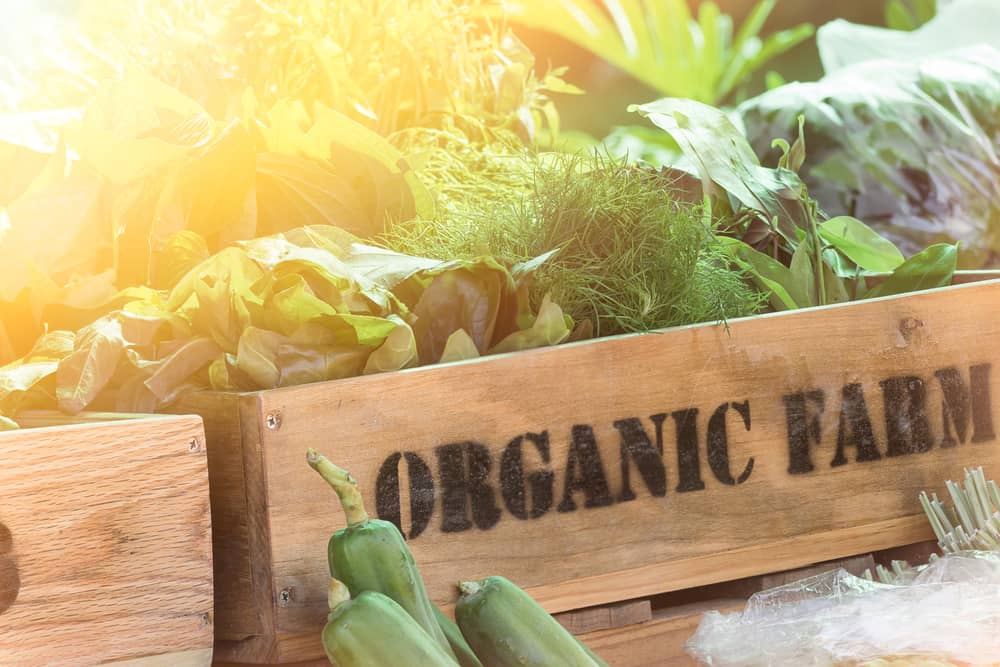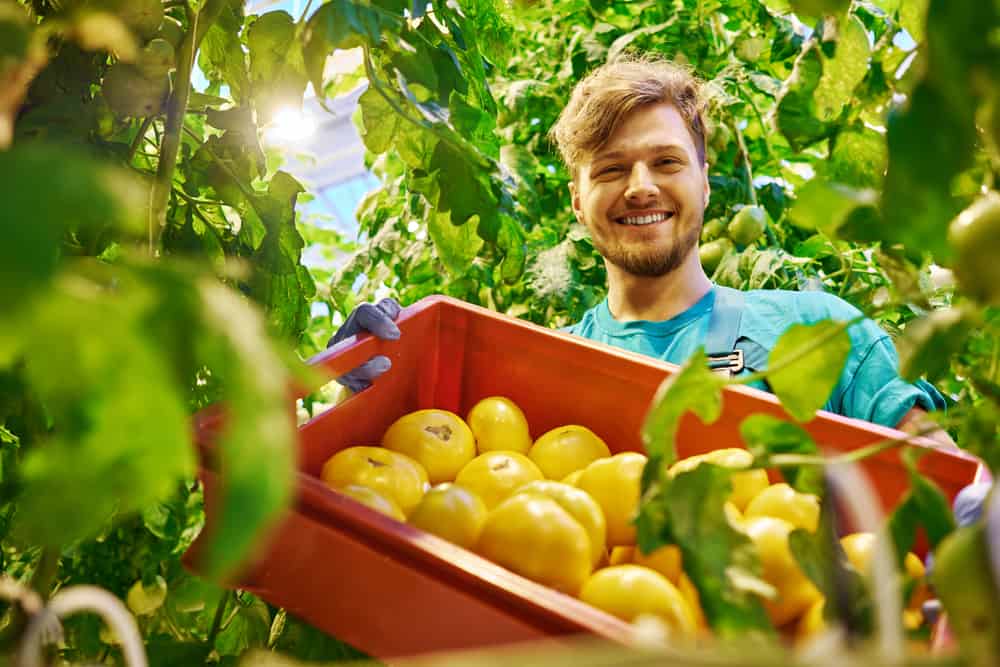Is Organic Food Better For The Environment?
A summer cucumber in your salad, a bed of red radicchio, a locally-grown heirloom tomato — organic food is our favorite! Going organic means getting rid of pesticide residues, synthetic fertilizers, and other chemicals. You allow fruits and vegetables to be naturally healthy, fresh ingredients, and vibrant produce that create flavor-packed menus and beautiful dishes.
But it also means doing something good for Mother Nature.
Whether you’re booking organic catering companies or purchasing organic food at the grocery store, it’s good to know just how important organic production, and buying organic is for the environment. For Eco Caters, organic and sustainable practices are second nature to our business. We devote our attention to values and taste; plated result proves that.
We’re passionate advocates about organic food, organic farming, and sustainable practices. So if you’ve ever found yourself asking why is organic food better for the environment — read on! This article is for you.
What The Organic Label Means
When diving into the question of is organic food better for the environment — it first helps to know what organic food is and what the organic label means.
Organic food refers to food or products that have been produced in a certain way. Organic food, such as fruits and vegetables, avoids artificial fertilizers, pesticides, growth hormones, and GMOs (genetically modified organisms).
To get a bit more specific, the USDA states, “USDA certified organic foods are grown and processed according to federal guidelines addressing, among many factors, soil quality, animal raising practices, pest and weed control, and use of additives. Producers or organic agriculture rely on natural substances and physical, mechanical, or biologically based farming methods to the fullest extent possible.”
They further explain that produce can be called organic if it’s been grown on soil with no prohibited substances for three years before the harvest. Organic meat agriculture regulations require animals are raised in living conditions that accommodate their natural behaviors, like the ability to graze and eat organic feed and forage without the administration of any hormones or antibiotics.
Multi-ingredient foods (anything from granola to tortilla chips) cannot contain artificial preservatives, colors or flavors. The USDA makes an organic promise that includes on-site inspections for each component of an organic operation. From seed sources and soil conditions to weed and pest management and water systems, there’s a lot that goes into tracing organic products from start to finish.
But once you’re familiar with the label and the definition of organic food, it’s easier to understand organic foods’ impact on the environment. When you purchase an organic apple from the grocery store or hire an organic caterer for your weekly team meeting, you’re making an important statement: that you care about the human health of yourself and your guests.
Organic Food and The Environment

Organic farming helps the environment in a variety of ways. From healthier soil to water conservation, this is how buying organic benefits the environment.
Healthy Soil
Organic farming builds healthy soil as farmers release nutrients into the soil by way of minerals, compost, and manure. Healthy soil is key for biodiversity — or the variety of plant and animal life in a particular habitat.
No Chemicals and Pesticides
Conventional farming uses chemicals like fungicides, herbicides, and insecticides, which transfers over into the food we ingest. Organic farming also reduces exposure to pesticides and chemicals, not just for us as food consumers, but for the farmers and the animals, too.
Animal Health and Welfare
When you purchase organic products, you support animal health and welfare. Through exercise, free-range access to pasture and high-quality, natural feed, animals are raised better than in conventional farming.
Water Conservation
Not only is organic food good for the environment on land and in the soil, but it’s good for our water supplies as well. The organic farmer keeps our water clean by stopping polluted runoff. It also conserves water, as organic products tend to require less irrigation than conventional products.
Health Benefits of Going Organic
When you go organic, you’re saying no to chemicals and pesticides yes to food that’s produced naturally. In a 2017 research study by Penn State, long-term exposure to pesticides showed a variety of health risks. “Suspected chronic effects from exposure to certain pesticides include birth defects, toxicity to a fetus, production of benign or malignant tumors, genetic changes, blood disorders, nerve disorders, endocrine disruption, and reproductive effects.”
Certified organic food is also shown to contain higher levels of minerals and vitamins. organic.org writes that in a review of 400 published papers comparing organic and nonorganic foods, Soil Association Certification Ltd. of the United Kingdom reported that organic crops were higher in essential minerals, vitamin C and phytonutrients — which are plant compounds other than vitamins and minerals (like enzymes, antioxidants, and bioflavonoids).
How Eco Caters Does Organic

Eco Caters was founded in 2007 with a mission to provide the highest quality event catering to our community. Our team incorporates organic ingredients, sustainable practices, and crowd-pleasing menus into our business every day. Through style and sophistication, our organic menus taste good and feel good.
We work with community farmers for local, in-season products and source sustainable seafood primarily from California or the Mid-Atlantic region. Whether we’re catering a wedding, a birthday party or a corporate event, we’ve earned a reputation for excellence in high-quality organic catering services. We love Mother Nature and are proud to prepare our organic food thoughtfully and with style.
So, is organic food better for the environment? The answer is yes! Between healthy soil, healthy animals, and healthy bodies — it’s safe to say that buying organic is the right way to go. So, when you go organic, not only are you contributing to bettering environmental factors, but you are also bettering your human health as there are so many health benefits of organic eating. If you’re looking for an organic catering company who cares, reach out to Eco Caters today. We’ll work collaboratively with you to ensure that your event goes above and beyond.
Remember that when hiring an organic caterer, you’re not only supporting one local company — you’re supporting other establishments. Such as local growers’ organic production of their fruits, farmers and their crop of vegetables, and, of course, the environmental impact as a whole.
From all of us at Eco Caters, thanks for reading about how going organic can make such a great environmental impact! We hope you decide to consider the organic label, and we wish you a nutritious, wholesome week ahead.